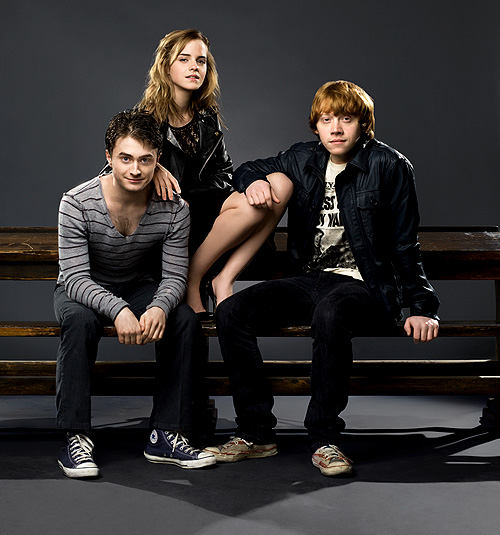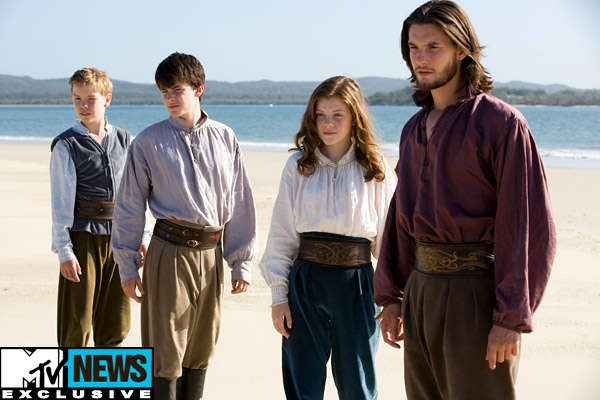 |
| An example of the cheesy nationalism I was so glad to not see. As an absence of something is quite difficult to depict, I've taken an alternative approach |
The failure of my predicted frustration to eventuate was to a large part due to the work done on creating a relatively three dimensional love interest in Gwen who manages to have (shock, horror) interests beyond dating the hero. Gwen is an exceptionally talented science student who has managed to secure a position as head intern at the prestigious institution researching cross species genetics which is so key to the plot of the movie.
 |
| Emma Stone, looking clever, having interests |
I won't spoil the ending for you, but Gwen has a major role to play in the last 20 minutes of the movie and it's not just keeping the hero's spirits up with a quick smooch or anxiety inducing damsel in distress routine.
However, other elements are not so great. In particular, Emma never speaks to another woman. What's this got to do with anything, you ask? The Bechdel test is a way of assessing, on a large, industry wide scale, the state of the representation of women on film and tv. It was first enunciated by Alison Bechdel in her comic Dykes to Watch out For, and to the surprise of everyone involved, became a major sensation.
The test is simple:
(1) Does it have more than one women in it?
(2) Do they talk to each other?
(3) When they talk, do they talk about something other than a man?
I could go into more detail at this point, but this ground has been covered before.
The number of movies which do not pass this test is astonishing and indicative of the deep, pervasive and continuing influence of the patriarchy on our society. A running tally is kept here, but the site appears to be down for maintenance at the moment. However, a more meaningful analysis might involve looking at a list of recent Oscar winners, or the IMDb top 250. Melissa Silverstein argues that the Oscar nominees skew more white, conservative and middle class than the majority of movies actually produced, but a list of the movies celebrated by society for their artistic merit holds some significance nonetheless.
There are a number of factors at work in creating a world where we are not telling the stories of women, or including their voices in the stories of people and events. I would like to briefly discuss two: tokenism and being defined in relation to men, and not as independent actors.
Where women appear on screen, they are outnumbered by their male counterparts. This is obvious not only in the Avengers poster, where the Black Widow's fetching pose makes a sharp contrast with her fellow heroes' fight-ready stances, but also in that sacred institution of young adult plotlines, the boy-boy-girl trio.
Sure I could cite isolated examples where the opposite is true, such as the original Buffy - Willow - Xander scooby gang, or the four Pevensie children in The Lion, the Witch and the Wardrobe, butt the boy-boy-girl grouping is incredibly pervasive.
Another area where movies commonly fall down in relation to women, is in linking them strongly to the plot. In Spiderman I counted five women with speaking roles: Parker's Mum, Aunt May, Gwen, a teacher and a secretary at Oscorp. It is notable that two of these women actually have their relationship with the main character designated in their names. That is not to say that the caring work they do is any less valid, but that their relationship to the actual plot is peripheral at best. They are not fellow fighters, police officers or scientists. They are not depicted as engaging with the world at large, but with the hero in particular.
Given that their characters are related to the plot only as support characters to the main male plot drivers, it makes sense that they are only depicted in relation to the male characters. Parker's Mum never spoke to Aunt May about her fears and apprehensions about what might happen to her, just about Peter's vegetable intake. Aunt May missed a wonderful opportunity to make Gwen squirm in that special way only meeting the parents can do. Gwen's relationship with her mother is never mentioned and she seems to have no friends other than Peter.
But answering this question also means asking about the women who aren't there. The women who have no relation to the main male characters and who are therefore superfluous. About the female research scientists and the fifty percent of the population who weren't recruited as extras into the NYPC in Spiderman world. It's about asking why the rude clerk in the convenience store was male and not female, why Gwen has no friends, why the male bully was beating up another boy. Was a conscious decision made to not have women in these roles, or did unconscious prejudice take lead when a conscious decision was NOT made?
Of course, conscious decision must obviously have been made to result in the endless stream of rom coms about women married to their jobs who need to be saved from endless monotony and a frustration of their maternal and feminine instincts by the right man. This needs to stop
If any progress is to be made, it is not enough that directors, screen writers and producers refrain from deliberately enforcing the status quo, we need active support for stronger female characters, and more of them, so that they can be directly involved in important plot points.
Since I've come out and started embracing my identity as a queer woman, I have found myself reaching out for representations of people like me in the media, a lack of which I did not know I felt before I first fulfilled it. This makes me even more aware of what the scarcity of three dimensional female roles and role models in the movies and on our tvs must mean for the girls and women who grow up surrounded by it. Not seeing yourself on the screen or in books affects your ability to dream, to imagine who you might become. And dreams are important.
(1) Does it have more than one women in it?
(2) Do they talk to each other?
(3) When they talk, do they talk about something other than a man?
I could go into more detail at this point, but this ground has been covered before.
There are a number of factors at work in creating a world where we are not telling the stories of women, or including their voices in the stories of people and events. I would like to briefly discuss two: tokenism and being defined in relation to men, and not as independent actors.
Tokenism
Where women appear on screen, they are outnumbered by their male counterparts. This is obvious not only in the Avengers poster, where the Black Widow's fetching pose makes a sharp contrast with her fellow heroes' fight-ready stances, but also in that sacred institution of young adult plotlines, the boy-boy-girl trio.
 |
| Harry Potter |
 |
| Twilight |
 |
| The Famous Five |
| Thunderbirds |
 |
| Eustace, Edmund, Lucy and Caspian in Voyage of the Dawn Treader |
Sure I could cite isolated examples where the opposite is true, such as the original Buffy - Willow - Xander scooby gang, or the four Pevensie children in The Lion, the Witch and the Wardrobe, butt the boy-boy-girl grouping is incredibly pervasive.
Relation to plot
Another area where movies commonly fall down in relation to women, is in linking them strongly to the plot. In Spiderman I counted five women with speaking roles: Parker's Mum, Aunt May, Gwen, a teacher and a secretary at Oscorp. It is notable that two of these women actually have their relationship with the main character designated in their names. That is not to say that the caring work they do is any less valid, but that their relationship to the actual plot is peripheral at best. They are not fellow fighters, police officers or scientists. They are not depicted as engaging with the world at large, but with the hero in particular.
Given that their characters are related to the plot only as support characters to the main male plot drivers, it makes sense that they are only depicted in relation to the male characters. Parker's Mum never spoke to Aunt May about her fears and apprehensions about what might happen to her, just about Peter's vegetable intake. Aunt May missed a wonderful opportunity to make Gwen squirm in that special way only meeting the parents can do. Gwen's relationship with her mother is never mentioned and she seems to have no friends other than Peter.
But answering this question also means asking about the women who aren't there. The women who have no relation to the main male characters and who are therefore superfluous. About the female research scientists and the fifty percent of the population who weren't recruited as extras into the NYPC in Spiderman world. It's about asking why the rude clerk in the convenience store was male and not female, why Gwen has no friends, why the male bully was beating up another boy. Was a conscious decision made to not have women in these roles, or did unconscious prejudice take lead when a conscious decision was NOT made?
Of course, conscious decision must obviously have been made to result in the endless stream of rom coms about women married to their jobs who need to be saved from endless monotony and a frustration of their maternal and feminine instincts by the right man. This needs to stop
If any progress is to be made, it is not enough that directors, screen writers and producers refrain from deliberately enforcing the status quo, we need active support for stronger female characters, and more of them, so that they can be directly involved in important plot points.
Since I've come out and started embracing my identity as a queer woman, I have found myself reaching out for representations of people like me in the media, a lack of which I did not know I felt before I first fulfilled it. This makes me even more aware of what the scarcity of three dimensional female roles and role models in the movies and on our tvs must mean for the girls and women who grow up surrounded by it. Not seeing yourself on the screen or in books affects your ability to dream, to imagine who you might become. And dreams are important.



No comments:
Post a Comment